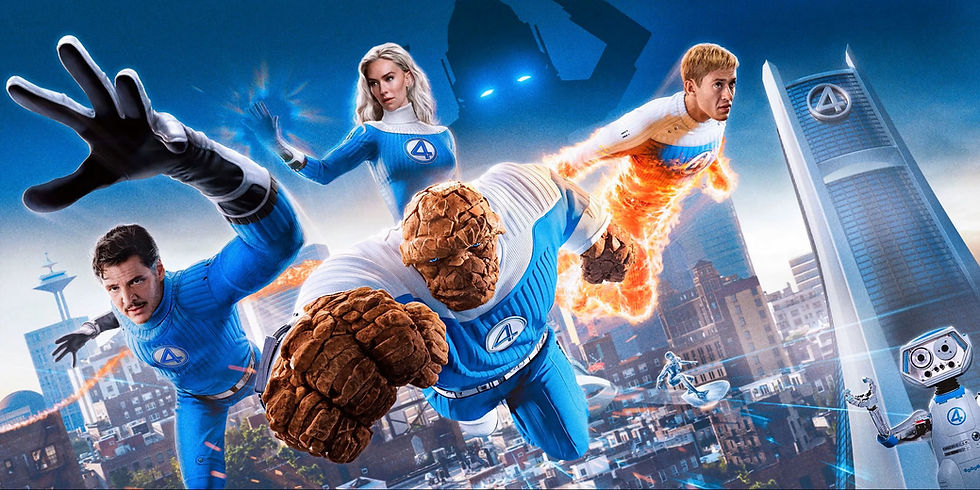Meh in Black
- Jul 7, 2021
- 3 min read
As a fan of the first Men in Black film from 1997, I was initially excited to see what an in-continuity spin-off of the franchise would look like. Even though the marketing felt a little too much like a generic blockbuster (a la the Fast & Furious series), I was still curious to see what director F. Gary Gray and two Marvel stars (Chris Hemsworth and Tessa Thompson) at the helm would bring to this universe instead of the series' original director Barry Sonnenfeld and stars Will Smith and Tommy Lee Jones.
Hemsworth and Thompson's performances and chemistry with each other are solid, and they are easily the most enjoyable aspects of this movie. Emma Thompson's cameo as Agent O from Men in Black 3 (2012) is delightful but heavily underutilized, as she could have had a more active role in the main characters' mission than Liam Neeson's character of High T, whom I found considerably less interesting. Also, considering how charismatic Neeson is as an actor, I found his performance here to be phoned in.
Visually, aesthetically, and stylistically, it is a Men in Black movie. All that is lacking is the original film's wit and joy and a new and fresh take on the directing front. Pepper in some horrendously blatant product placement and a severe case of a studio trying to prolong a beloved franchise that had already run its natural course a la Warner Bros. with Ocean's 8 (2018), and you get Men in Black: International (2019). I could not find any sign of creative freedom within this movie's direction, which I do not blame Gray for at all. Instead, one of the primary culprits involved is Walter Parkes, a producer closely associated with the franchise, who favored a more studio-friendly version of the film, in contrast to Gray's more sociopolitical-themed cut of the movie, which reportedly included commentary on current debates over immigration and had villains that were to be a Beatles-inspired alien music group instead of the final version's shapeshifting alien Twins, played by French dance duo, Les Twins. I would have loved to have seen Gray's iteration of the movie instead of the theatrical version that was so by the numbers that it did little to expand this cinematic universe. The overall direction for the final cut resembles one required for a highly generic 2010s blockbuster mashed-up with a pale imitation of Sonnenfeld's visual aesthetic from the first three films. As for Art Marcum and Matt Holloway's screenplay, while functional for a Men in Black remake, it lacks any personality or energy that would distinguish itself from another entry in the series. Although the musical score from series regular Danny Elfman wasn't that bad, as it still managed to bring much of the previous film's atmosphere to this one.
In conclusion, Men in Black: International left me disappointed, and frankly, a little bored. Seeing familiar creatures and characters from the previous films as cameos were what kept me from falling asleep during my viewing experience. Honestly, I got more delight out of seeing a friend from my high school days working at the theater I visited than the movie I went to see. However, the experience was not a complete loss, for by the time I got back home, I listened to Will Smith's titular song for the first Men in Black movie, and all was right with the world that day.
Final Score: 4 out of 10





Comments